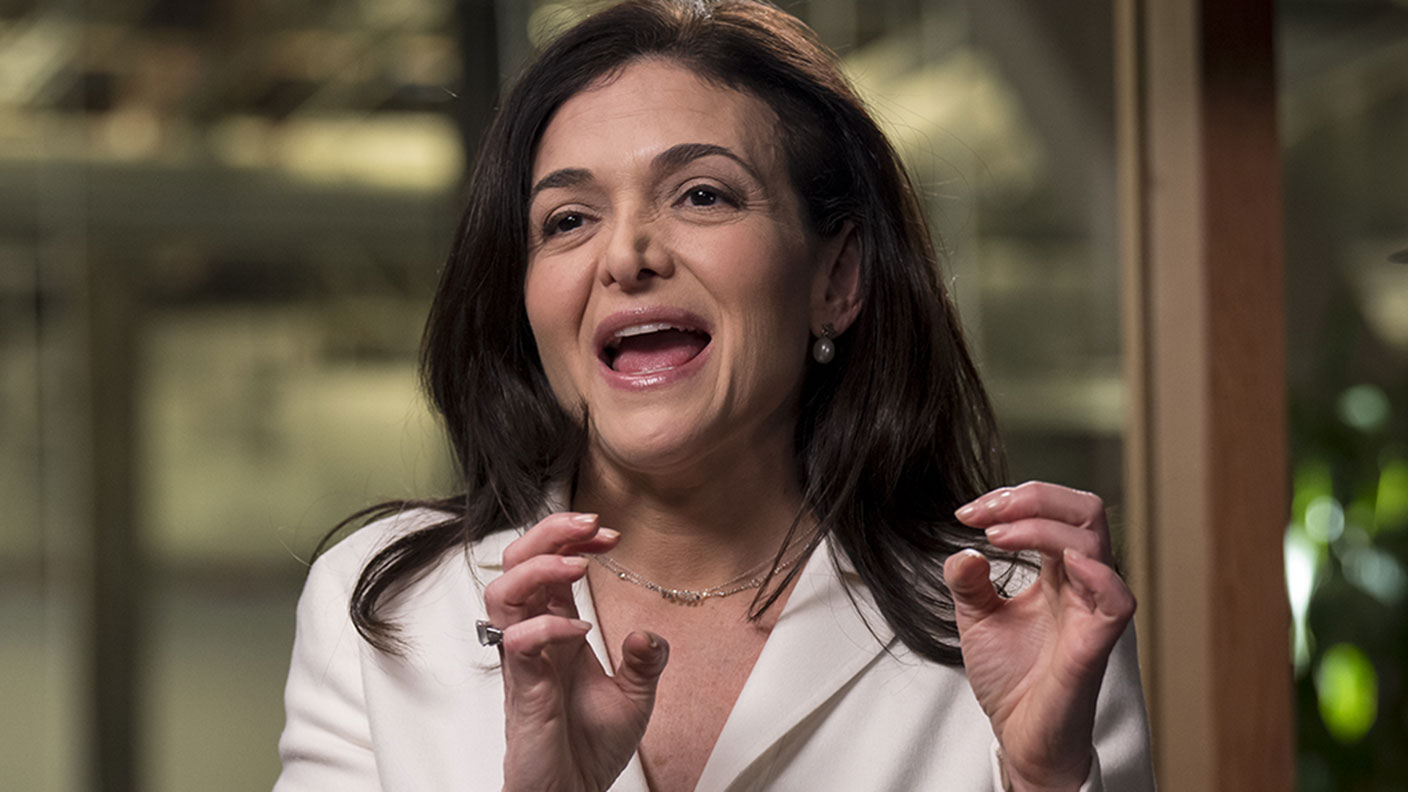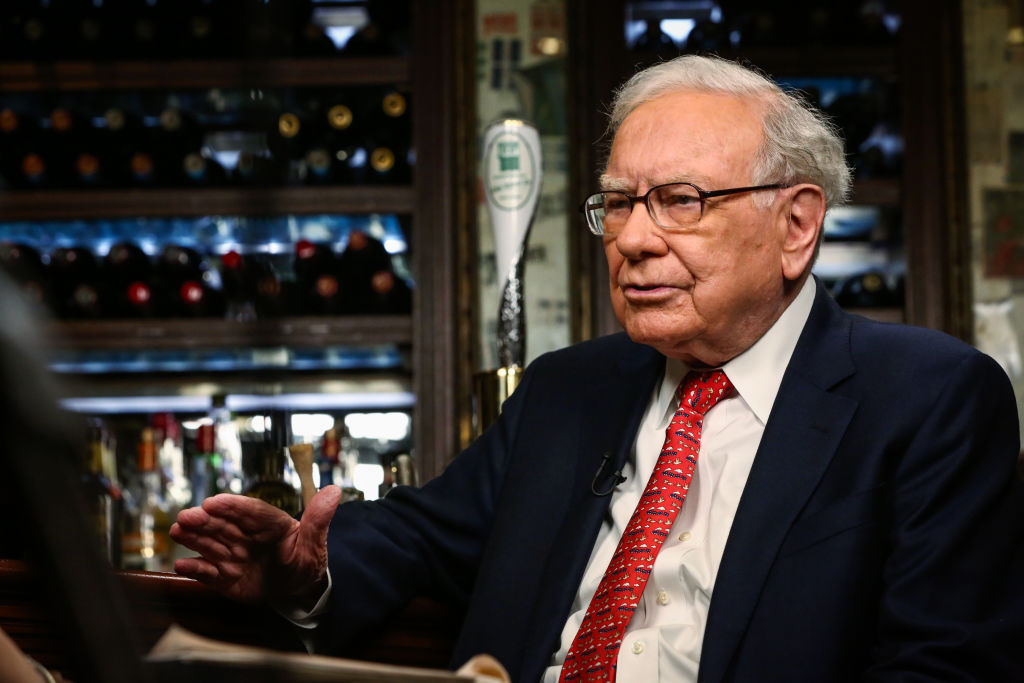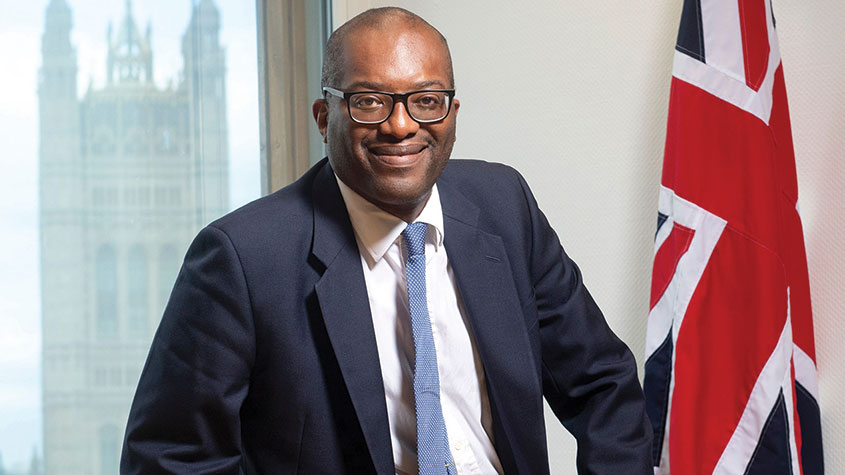Why UK companies should lean in and poach Sheryl Sandberg
Sheryl Sandberg has quit Facebook. Now’s the time for corporate Britain to move in and poach her says Matthew Lynn.


Get the latest financial news, insights and expert analysis from our award-winning MoneyWeek team, to help you understand what really matters when it comes to your finances.
You are now subscribed
Your newsletter sign-up was successful
Want to add more newsletters?

Twice daily
MoneyWeek
Get the latest financial news, insights and expert analysis from our award-winning MoneyWeek team, to help you understand what really matters when it comes to your finances.

Four times a week
Look After My Bills
Sign up to our free money-saving newsletter, filled with the latest news and expert advice to help you find the best tips and deals for managing your bills. Start saving today!
We may not ever know exactly why Sheryl Sandberg quit Facebook, now Meta. But there’s no question that Sandberg is one of the most talented corporate executives of her generation.
When she joined Facebook from Google in 2008, hired by the site’s founder Mark Zuckerberg, the business had revenues of just $272m and was making losses of $56m. It had no real business model, nor much idea how to create one.
After taking over as COO, Sandberg turned it into a brutally effective advertising machine, monetising all those hundreds of millions of eyeballs to brilliant effect.
MoneyWeek
Subscribe to MoneyWeek today and get your first six magazine issues absolutely FREE

Sign up to Money Morning
Don't miss the latest investment and personal finances news, market analysis, plus money-saving tips with our free twice-daily newsletter
Don't miss the latest investment and personal finances news, market analysis, plus money-saving tips with our free twice-daily newsletter
By last year, Meta had revenues of $118bn and profits of $39bn. At its peak, it had a market value of more than $1trn, one of only a tiny handful of companies to break through that barrier. Sandberg’s brand of right-on, corporate feminism – especially as championed in her best-selling book Lean In – may have become a little grating over the years, but she is a class act. Without her, Facebook might have struggled to find a business model that actually worked.
What will happen to Meta without her remains to be seen. It faces a stiff set of challenges. But the more interesting question is what Sandberg will do next. After all, at 52 she is still relatively young. Every company in the world should be trying to snap her up. And some of the giants of the FTSE should be trying to tempt her across the Atlantic. Here are three that could definitely use someone of her ability.
Three UK companies that could use Sandberg's talents
First, Unilever. Alan Jope is completely out of his depth at the consumer-goods giant. It has trailed behind rivals such as Nestlé and Procter & Gamble while focusing on wishy-washy virtue signalling far more than delivering returns for shareholders. He launched the most hopeless takeover bid of recent times with a failed attempt to buy GlaxoSmithKline’s consumer goods unit ahead of its demerger, and his only plan for the conglomerate seems to be the kind of “reorganisation” that consultants come up with when they can’t think of anything better to suggest. US corporate raider Nelson Peltz has already taken a stake and a seat on the board. Sandberg would be the blast of butt-kicking corporate fresh air the company so badly needs, while also maintaining its impeccably liberal credentials.
Next, the company Jope tried to buy half of – GSK. The hapless Emma Walmsley may finally complete her long-planned demerger into its pharmaceuticals and consumer goods unit this year. But she will remain in charge of the more important drugs business even after years of failing to deliver the major new medicines the company needs to start growing again. There is no reason to imagine she will be any better at the job now she doesn’t have to worry about toothpaste sales any more. Sandberg knows how to run a tech-based business, and one that depends on cutting-edge science, and swapping genes and molecules for codes and algorithms shouldn’t be much of a problem.
Finally, HSBC. The world’s only real global bank needs a leader with political skills and vision to navigate the tense relationship between its Chinese and European interests. Perhaps it needs to demerge? Create two self-managing companies? Or find a way of keeping both sides happy at the same time? These are hard questions and it will take a lot of tact and diplomacy, and a firm idea of where its future lies, to provide the answers. Sandberg is more likely to be able to manage that than another grey, faceless career banker.
Snap her up before the Americans do
Of course, a US company would be a more natural home. Regardless of whether Elon Musk buys it or not, she may well be the one person who could sort out the mess that is Twitter. Jeff Bezos must be wondering if she wouldn’t make a better successor as CEO at Amazon than the man he chose, Andy Jassy. Or Ford could use her talent as it transforms into a manufacturer of electric vehicles. There are not many executives as talented as Sandberg out there – if any British company could hire her it would be a huge coup.
Get the latest financial news, insights and expert analysis from our award-winning MoneyWeek team, to help you understand what really matters when it comes to your finances.

Matthew Lynn is a columnist for Bloomberg and writes weekly commentary syndicated in papers such as the Daily Telegraph, Die Welt, the Sydney Morning Herald, the South China Morning Post and the Miami Herald. He is also an associate editor of Spectator Business, and a regular contributor to The Spectator. Before that, he worked for the business section of the Sunday Times for ten years.
-
 Average income tax by area: The parts of the UK paying the most tax mapped
Average income tax by area: The parts of the UK paying the most tax mappedThe UK’s total income tax bill was £240.7 billion 2022/23, but the tax burden is not spread equally around the country. We look at the towns and boroughs that have the highest average income tax bill.
-
 BBC TV licence fee hike confirmed: can you reduce how much you pay?
BBC TV licence fee hike confirmed: can you reduce how much you pay?The cost of a TV licence fee is set to rise by over 3%, but there are ways to reduce the bill.
-
 VICE bankruptcy: how did it happen?
VICE bankruptcy: how did it happen?Was the VICE bankruptcy inevitable? We look into how the once multibillion-dollar came crashing down.
-
 What is Warren Buffett’s net worth?
What is Warren Buffett’s net worth?Warren Buffett, sometimes referred to as the “Oracle of Omaha”, is considered one of the most successful investors of all time. How did he make his billions?
-
 Kwasi Kwarteng: the leading light of the Tory right
Kwasi Kwarteng: the leading light of the Tory rightProfiles Kwasi Kwarteng, who studied 17th-century currency policy for his doctoral thesis, has always had a keen interest in economic crises. Now he is in one of his own making
-
 Yvon Chouinard: The billionaire “dirtbag” who's giving it all away
Yvon Chouinard: The billionaire “dirtbag” who's giving it all awayProfiles Outdoor-equipment retailer Yvon Chouinard is the latest in a line of rich benefactors to shun personal aggrandisement in favour of worthy causes.
-
 Johann Rupert: the Warren Buffett of luxury goods
Johann Rupert: the Warren Buffett of luxury goodsProfiles Johann Rupert, the presiding boss of Swiss luxury group Richemont, has seen off a challenge to his authority by a hedge fund. But his trials are not over yet.
-
 Profile: the fall of Alvin Chau, Macau’s junket king
Profile: the fall of Alvin Chau, Macau’s junket kingProfiles Alvin Chau made a fortune catering for Chinese gamblers as the authorities turned a blind eye. Now he’s on trial for illegal cross-border gambling, fraud and money laundering.
-
 Ryan Cohen: the “meme king” who sparked a frenzy
Ryan Cohen: the “meme king” who sparked a frenzyProfiles Ryan Cohen was credited with saving a clapped-out videogames retailer with little more than a knack for whipping up a social-media storm. But his latest intervention has backfired.
-
 The rise of Gautam Adani, Asia’s richest man
The rise of Gautam Adani, Asia’s richest manProfiles India’s Gautam Adani started working life as an exporter and hit the big time when he moved into infrastructure. Political connections have been useful – but are a double-edged sword.